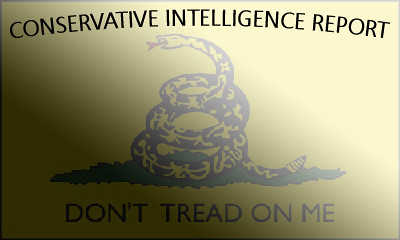Charlie Wilson's War(?)
Whose War? Separating Fact from Fiction in 'Charlie Wilson's War'
By Paul Kengor
"Reagan specifically urged the supplying of U.S. shoulder-launched, heat-seeking missiles that can shoot down Soviet helicopter gunships."
-Martin Schram, Washington Post, January 10, 1980
Last evening I drove to a nearby theater to catch Charlie Wilson's War, starring Tom Hanks, Julia Roberts, and Philip Seymour Hoffman. The hit movie, which is based on George Crile's book about how former Rep. Charlie Wilson (D-TX) helped fund the Afghanistan Mujahedin back in the 1980s, is written by Aaron Sorkin, of the television drama, "The West Wing," and directed by Mike Nichols.
I'm an historian, not a film critic. My objective here is to show where the movie is inaccurate -- at times, woefully so.
Simply put, the movie vastly exaggerates the influence of Charlie Wilson at the expense of individuals who were equally or even far more influential, and who somehow are not mentioned whatsoever -- a gross, intentional, and rather shameless oversight.
Here's the situation: The movie, and the book, is about a moderate-to-conservative Democratic Congressman, a profane, hard-drinking, womanizing, anti-communist politician who was indeed -- as the movie makes abundantly clear-- very important to providing a huge amount of covert financial and military support to the Mujahedin rebels who resisted the Soviet Union after the Red Army invasion of Afghanistan in 1979. The USSR brutalized the nation and its innocent people. Charlie Wilson's goal was to give the Afghan "freedom fighters" the supplies they needed to defeat the Soviets.
While all of this is true, this is (at best) half the story -- maybe even a quarter of the story. It helps explain what happened in the Democrat-controlled Congress, where the likes of Charlie Wilson were a godsend to counter the San Francisco Democrats and Massachusetts liberals who would have let Central America become a Soviet-Cuban outpost.
But the rest of the story, which receives no mention, is that it was the Reagan administration, and specifically CIA director Bill Casey, National Security Adviser Bill Clark, Secretary of Defense Cap Weinberger, and Ronald Reagan himself -- plus numerous aides -- who were the driving force behind supplying the Mujahedin. This movie could have been made 10 years ago about Bill Casey, whose actions were even more dramatic than Charlie Wilson's -- albeit not as obscene -- or about Bill Clark.
It is an obvious reflection of the liberal biases of Aaron Sorkin and Mike Nichols -- and the CBS News / "60 Minutes"-affiliated staff-that Casey, incredibly and unforgivably, is not referenced even once. This is an outrage, and yet another stunning example of how liberals in Hollywood literally create their own fictional versions of history, totally airbrushing conservatives they never liked and forever refuse to credit even in the face of overwhelming evidence. The movie-makers don't seem to realize, nor care, that this undermines their overall work -- including the parts that have merit. Their lack of fairness works against them.
Ironically, conservatives have been fair in telling this story. For instance, in a book where I laid out the Reagan administration strategy of funding the Afghan rebels, I paused to shoehorn in a paragraph acknowledging the input of Charlie Wilson and his sidekick, Gust Avrakotos, who is portrayed colorfully in this movie by Philip Seymour Hoffman. My editor suggested that I remove the paragraph, but I argued that it was crucial -- even ethical -- to give credit where credit is due, even when editorially awkward.
This movie isn't nearly so fair-minded. In one maddening scene, Charlie Wilson asks Gust Avrakotos about America's strategy in Afghanistan. "Well, strictly speaking, we don't have one," says Avrakotos, "but me and three others are working on it." (Read the rest...)






<< Home